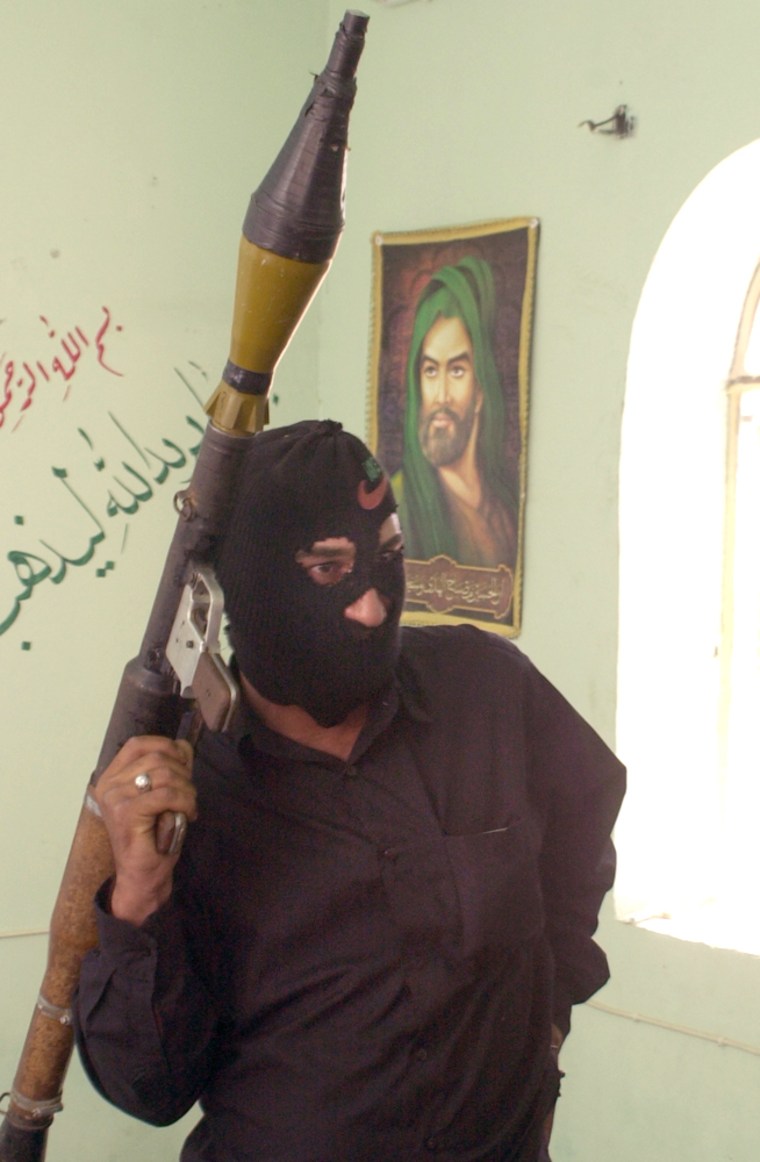Iraq’s prime minister, less than a week after taking power, may offer amnesty to insurgents and could extend it to those who killed American troops in an apparent bid to lure Saddam Hussein loyalists from their campaign of violence.
A spokesman for Iyad Allawi went as far as to suggest attacks on U.S. troops over the past year were legitimate acts of resistance — a sign of the new government’s desire to distance itself from the 14-month U.S.-led occupation of Iraq.
“If he (a guerrilla) was in opposition against the Americans, that will be justified because it was an occupation force,” spokesman Georges Sada said of the rebels. “We will give them freedom.”
Choking the brutal insurgency is the No. 1 priority of Allawi’s government, and the prime minister is expected to make a number of security-related policy announcements in coming days.
Besides the amnesty plan, those include a new emergency law that sets curfews in Iraq’s trouble spots and resurrects of Iraq’s death penalty, Sada said.
Still in the works
The amnesty plan is still in the works, and a full pardon for insurgents who killed Americans is not a certainty, Sada said. The main thrust is to “start everything from new” by giving a second chance to rebel fighters who hand in their weapons and swear off the insurgency.
“There is still heavy discussion about this,” said Sada, interviewed in the prime minister’s office. He said the U.S. Embassy has encouraged Allawi to try creative solutions to end the insurgency as long as they don’t infringe on human rights.
There is wide acknowledgment that U.S. occupation chief L. Paul Bremer’s disbanding of Iraq’s army and security services was a mistake, and forced people into fighting the occupation for money and revenge, Sada said.
“Some people were cheated, some were misled. Some did this because they had no salaries, no food, no bread,” Sada said.
There appears to be little controversy about pardoning rebels who were not actual killers of U.S. or Iraqi security forces. Sada said it was “no problem” to amnesty rebel financiers and those storing heavy weapons in their homes.
The offer appears to be intended to drive a wedge between nationalist Iraqis who fought the U.S.-led occupation and their growing alliance with Islamic fighters who want to drive Westerners and their influence out of Iraq.
One former colonel in Saddam Hussein’s secret police said he and other former members of Saddam Hussein’s Baath Party would welcome any amnesty. The man, now a Mosul taxi driver who asked that he simply be called Abu Hani, said the Islamist fighters would be unlikely to accept Allawi’s offer.
“In my opinion, Allawi and (President Ghazi) al-Yawer are working to salvage the country from the ordeal. They are going in the right direction,” Abu Hani said.
